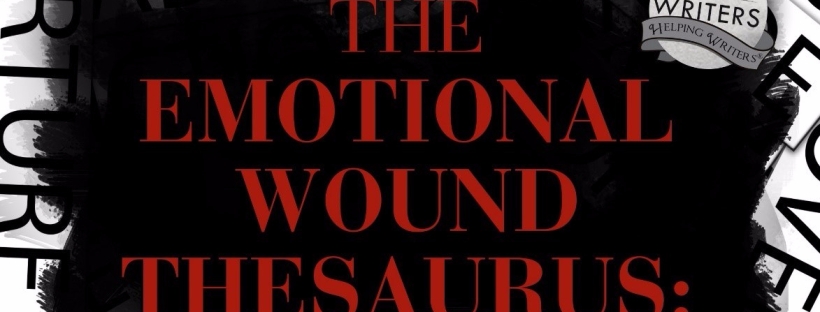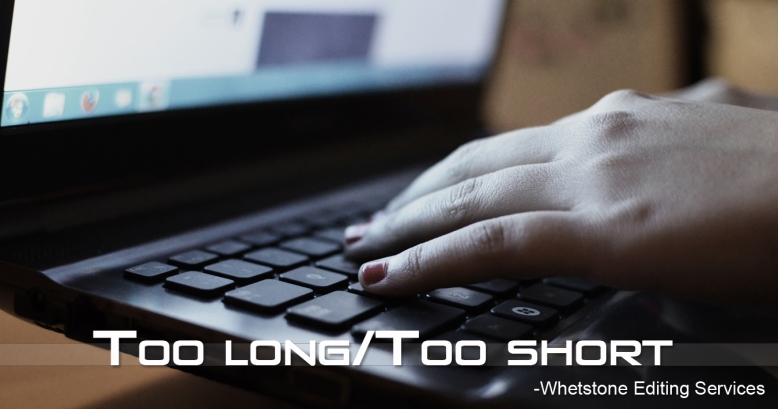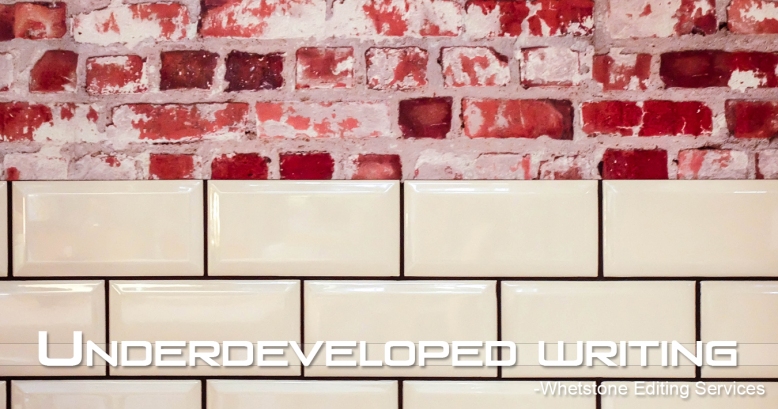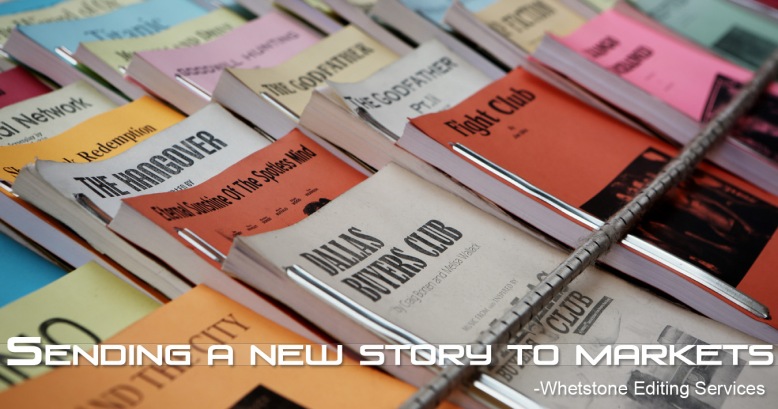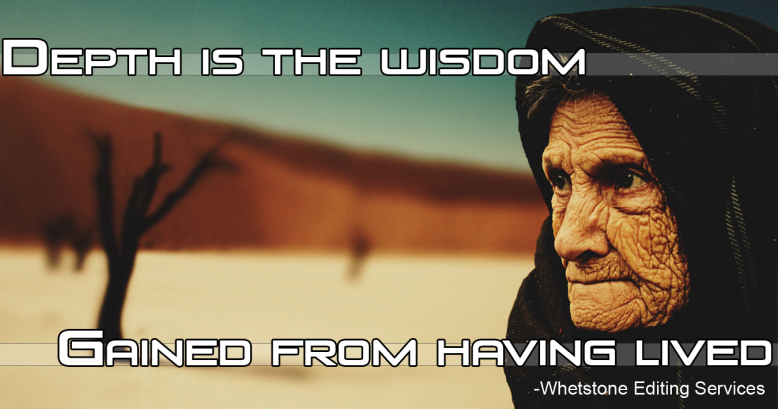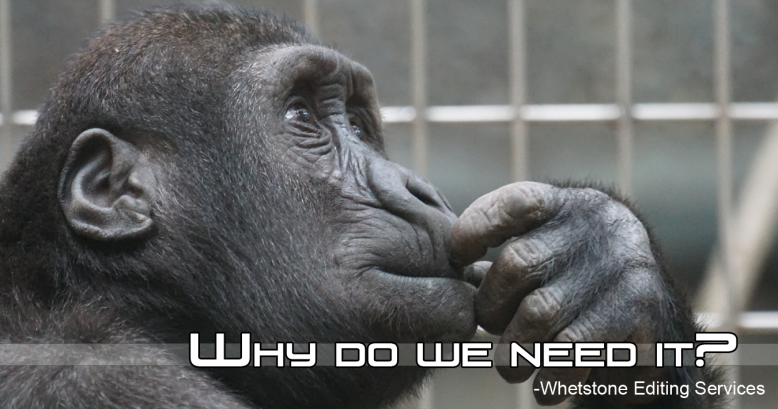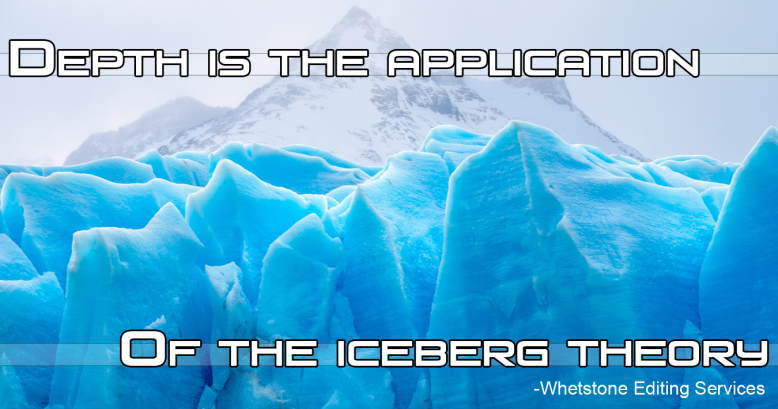Is your main character an eternal fool? So long as they’re believable and their idiocy is rooted in depth, there’s nothing wrong with that. But steep their stupidity in nothing more than convenience and you render them a mere vessel whose sole purpose is to move the plot along without conflict, resistance, and challenge, and you deny your MC an opportunity to grow.
To top it all off, you’ll vex editorial team members reading your submission. You won’t like us when we’re vexed.

In my first installment in the Depth series, we delved into what depth was, why we needed it, and how to create it.
Today, I’m going to use the nonexistent story I Think My Wife is a Werewolf to illustrate issues my colleagues and I see in the slush pile with infrequent regularity: a lack of depth and convenient stupidity.
Descriptions of off-screen, graphic violence ahead. Please skip the block quote below if you are so inclined.
The cabin’s air, gripped with winter, chills Cedric Van Osen’s skin through his nightshirt. Had Agatha put out the fireplace? Why? He gropes along oak walls in low lamplight toward the horrible breaking, sucking, gurgling sounds—toward Agatha’s studio.
The studio door yawns open and the vile, putrid stench of spilled innards and bile crawls over him.
“Agatha?” He calls his wife and steps over downed easels and paintings ripped to shreds. “Agatha!”
Menace hulks in the darkened corner of the room. Cedric raises his lamp as it turns to face him.
The werewolf that had terrorized the town straightens and towers above him. Its eyes, Agatha’s eyes, glow in the light. Behind it, in a heap of crimson and salmon, lies a mutilated Lady Wintermore—Agatha’s newest muse.
The werewolf, Agatha, approaches, licks her teeth and extends her claws. Cedric clamps a shaking hand over his mouth as tears stream down his face.
END
Out of context, that ending isn’t bad.
In context, it’s the end of a 5000-word story where it was obvious to readers Agatha was a werewolf within the first 500 words, yet Cedric never discovered this until his—and the story’s—end despite ample clues, evidence, and questions with no other logical answers.
Cedric is a product of convenient stupidity, and convenient stupidity is a hallmark of underdeveloped writing.
Those might sound like harsh words, but through bluntness, I intend to drive home a point.
Often our characters and their actions don’t come off as stupid to us. It’s the farthest thing from our mind when we write them. But to a reader or an editor, it often comes off as convenient and stupid when our characters do things that are against their best interests, out of sync with the world logic, not in tune with the characters’ internal logic, and otherwise serve no purpose but to facilitate the plot’s progress.
Worse still, no matter how much blood, sweat, and tears we pour into the piece, it will come off as lazy.
It happens. I’ve done it myself.
Oftentimes an author might subconsciously decide that it’s the only way to move a story toward its jaw-dropping ending.
An author might wonder, “If the big reveal isn’t a mystery to the main character, how will the ending have the intended gut-punch?”
There are two problems with that.

First, are you certain what you’ve written is a mystery? Or is it a story that simply leaves out a lot of important details and confounds the MC without any reasonable explanation?
Mystery, as any story element, can be utilized in any genre. Mystery works especially well in speculative fiction.
A good mystery doesn’t take the easiest path to its ending by running circles around an easily and inexplicably befuddled character.
A good mystery challenges. It leaves enough clues for the main character, and reader, to make logical deductions and ascertain the answers to the story’s riddles, puzzles, and questions.
Test whether your story’s mysterious elements are handled well.
A reader should be able to think back over the story (or read it again), notice all the clues that were there all along and be delighted that you had them fooled. If they weren’t fooled, they’ll be pleased they figured it out and feel rewarded for having paid attention.
If there aren’t enough clues to make the logical links necessary to solve the puzzle, you’ve got more work to do.
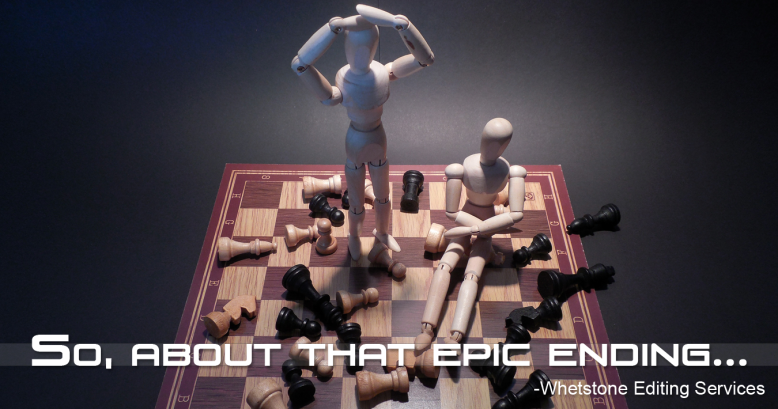
Second, does that devastating ending you conceived at 4 AM (and hurriedly scrawled onto a notepad before the lingering effects of the inspirational waking dream wore off) still make sense upon sober reflection?
As an author, I get brilliant ideas for openings, endings, characters, fight scenes, romances, moral dilemmas, tragedies, and set pieces at the oddest hours.
In the harsh light of day, these ideas often aren’t so great when I pore over my notes.
Sometimes I have to scrap them entirely. Other times I need to write them out of my system and then lock them away. Then there are those times when the core of the idea holds up rather well after scrutiny and several rounds of revision.
Give your brilliant ideas a little time to mature. Put your devastating ending through the paces. If it only makes sense because your MC unknowingly facilitated it through author-imposed ignorance, it’s time to edit and revise or scrap it.
You might want to shout, “He’s crazy! I can’t. It’s too brilliant.”
Truth is you’ll have ideas that outshine even those you think you’ll never top, and with modern technology, you don’t have to throw anything away.

An author should be ready to let go of an idea that’s holding the story back, even if they love it. That goes for devastating endings or a character with convenient ignorance instead of thought-provoking, reflective development.
This is especially true for writing that is so baldly a transparent construct. As noted in my July 31st piece, our constructs must be the antithesis of that.
Depth is the difference between facilitating I Think My Wife is a Werewolf’s progression through the convenient stupidity of its central character and methodically crafting a believable explanation for Cedric’s ignorance.
The reasons for his ignorance are only limited by the imagination.
Perhaps he wore blinders due to deep-seated personal reasons.
Back story brainstorm notes – 8/09/2017:
Cedric had always known there was a supernatural darkness within her when they wed four years ago, he had heard the tall tales about her family. He’d chosen to ignore all of it. He prefered to see the best in people.
She had been a vision to his eyes, her kind, generous and caring nature a warm and welcome respite from painful and failed relationships with opportunistic women who’d come before.
That creates a good deal of emotional depth, but what about some practical reasons?
Perhaps Agatha’s family wealth was a safety net.
Back story brainstorm notes – 8/10/2017:
Six months before he met Agatha, he’d returned home from a failed three-year business venture (his partners had swindled him and their customers, burned the building to the ground and set sail with the money) to inherit his father’s failing business just before the man died.
His life was at an all-time low. Agatha and her inheritance had rescued Cedric and his family business.
By freewriting a little backstory (one of the depth creation methods, among many, that we covered last time), we’ve shaped Cedric’s convenient stupidity (that would be right at home in a slasher film) into a willfully-blind ignorance born of his inability to see the darkness in people, a genuine admiration of and affection for Agatha, and a desperate need for her companionship and money.
We’ve given him an entirely human yet twisted agency: he chose to look the other way time and again regarding Agatha’s secret. They may not have been good reasons, they may have been immoral, but they were his reasons and a reader will understand them.
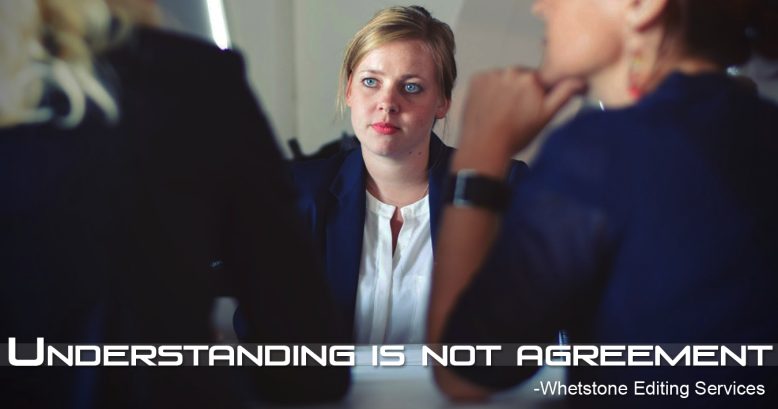
Remember that original ending? Cedric seeing Agatha’s true form for the first time and backing away in terror before he’s eaten might still fit this deeper narrative.
It might.
Conversely, it might also cheat the readers out of something more meaningful, something deeper, more twisted, and more interesting that sets itself apart from a generic horror ending.
With an extra 500-1000 words, we could give the story a memorable ending directly influenced by the depth we’ve now created.
Perhaps our newly layered Cedric sees that Agatha’s murdered a woman, an important woman, and that she could well do the same to him.
Scene brainstorm and outline – 8/11/2017:
Cedric could keep his head, ignore Agatha and slowly shut the door. That night, he wouldn’t sleep. Through the silent terror waiting for Agatha to burst through the door and take his life, he keeps himself calm by making plans to cover up Lady Wintermore’s death as a bear mauling.
In the morning, awakes to find himself unharmed, Agatha gone, and Wintermore’s body missing.
A hunting party is formed to find Wintermore and the werewolf. Cedric volunteers to join it, surprising everyone who knows him as such a taciturn fellow. He gives the reasoning that Wintermore was a such a dear friend of Agatha’s and now his wife is too sick with grief to leave the house.
On the hunt, there’s trouble; at dawn, another hunter finds Agatha moments before Cedric.
The man tells Cedric to call the others over covertly as not to alert the beast, and sneaks up on Agatha’s sleeping werewolf form.
Cedric has a choice to make.
He stabs and kills the man, then Agatha wakes.
Without knowing if she will comply or kill him, Cedric tells his wife to attack him, and tear open the man’s wound with her claws.
After she complies and runs off, Cedric fires off a few rounds and points the hunting party in the wrong direction.
Back at home that afternoon, Cedric returns to find Agatha in human form. They both tend to their wounds.
They discuss what to eat for dinner, Lady Wintermore’s death and no doubt upcoming funeral, parties they don’t feel like attending in the coming season, and how much they’d both like a change of weather and scenery.
With the prospect of a move to a new country in mind, they go to bed and fall asleep in each other’s arms for the first time in a long time.
Cedric wakes during the night when Agatha stirs. He lies awake, still enamored with his wife, but gripped by the fear of what she becomes—unsure if love is enough to keep the monster at bay.
The rough outline of I Think My Wife is a Werewolf’s new ending isn’t perfect and would require quite a bit of work to flesh it out, properly foreshadow the events, and necessitate a title change. There’s also the hurdle of traditional genre conventions: werewolves typically have no control over their appetites when shifted.
It’s a different story now, but from my experience, the added depth has drastically improved its chances of being held and accepted in a broader set of markets.
Instead of a common horror story ending where the dumbfounded MC meets their end at the hands of a monster, unique characters with agency have taken shape and given the story an unexpected yet natural ending.
The premise that Cedric could ignore all the clues his wife was a werewolf is supported with believable rationales.
Time is valuable, and stories shouldn’t waste it—not for the author, a publication’s editorial team, or the publication’s readers.
No matter what side of the dynamic we’re on in the publishing business, a story with depth is that much more worthy of our emotional, financial and temporal investments.
If the editorial team was torn between two stories with the same concept, an equal level of entertainment value, and both were well-written, I’d fight tooth and nail for the one that dug deep over the one that merely scratched the surface of its central premise, characters, and world.
As a senior editor, even if that story’s imperfect it outshines the one that perfectly executes a generic concept I’ve read twenty-five times in one year.
Adding depth to your story is a great way to avoid the pitfalls of the slush pile, and ensure an editorial team takes note of your submission—putting you that much closer to gaining traction, recognition, and payment for doing what you love.

An oversimplified answer is “as much as is needed.”
A swashbuckling romp of an adventure might not require the same amount of depth as a psychological horror piece, nor will it need the same kind of depth. Depth would also be utilized in keeping with adventure genre conventions.
Witty banter and sweeping action and set pieces might be the focal point in the swashbuckler, so an author might invest more depth there. But is there really any reason not to invest logical and deep underpinnings as to why the story’s heroine fights? As long as it doesn’t get in the way of the fast-moving plot and fun, I think it’s worth enriching more than just dialogue and action with depth.
If readers understand why the heroine fights, who or what she fights for, they will invest emotionally—they will care.
In summation:
- Be conscious of writing convenient stupidity or otherwise letting the story and its underdeveloped writing lean on similar convenient crutches. This absolutely includes inexplicable brilliance, uncanny and unearned expertise, or similar attributes.
- If you need to write such characters, then write ignorant, dense, gullible, blindly stubborn, willfully ignorant, or one-track minded individuals because it is their nature—not because it’s the easiest path through the plot’s development.
- Establish and explore their nature with depth, weave it into the fabric of the story with context, and make it part of the bedrock of who they are.
- Don’t overstuff the story with visible backstory. Keep it in context and remember the iceberg theory.
Overall, it’s often a question of balance. Will new levels of depth change your characters and story, and is that a bad thing? Will things stay the same?
All this and more is up to you.
Remember, a lack of depth only limits your story, while layers of it create more possibilities. In my capacity as Whetstone editor, I’d love to work with you to create depth and possibilities in your stories.
Whatever you decide, make your readers believe because make believe is your business.
How do you feel about convenient stupidity in literature or media? How do you feel about inexplicable brilliance and uncanny and unearned expertise? How do you tackle it in your own works? Let me know in the comments!
Thank you for reading! If you’ve enjoyed this post, found it useful, or learned something new, consider leaving a tip.
-Whetstone
Catch me on Twitter at @WhetstoneEditor to continue the discussion there using all the apropos hashtags, and the Whetstone originals #FictionDepth, #DepthIsValue, #TimeIsValuable, #WhetstoneEditor, #GSFiction, and #DSFA (Dear Speculative Fiction Authors).
 Because Angela and Becca have spent the last year exploring painful human struggles, they wanted to highlight a very important aspect of overcoming difficult circumstances: it can make us stronger. I promised to let Angela hijack my blog today, so please read on!
Because Angela and Becca have spent the last year exploring painful human struggles, they wanted to highlight a very important aspect of overcoming difficult circumstances: it can make us stronger. I promised to let Angela hijack my blog today, so please read on! GIVEAWAY ALERT!
GIVEAWAY ALERT!
